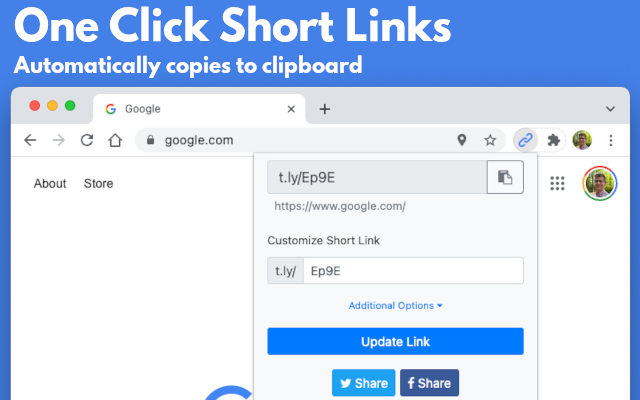
Organic Marketing: The Basics
If you want to increase website traffic without spending money on ads, then organic marketing is the way to go. Organic marketing is a term used to describe gaining website traffic through unpaid methods. This can include search engine optimization (SEO), content marketing, and social media outreach. In this blog post, we will discuss the basics of organic marketing and how you can use it to improve your website’s visibility online!
What is organic marketing, and why should you care?
Organic marketing is advertising your products or services using natural, unpaid methods. This includes things like search engine optimization, social media marketing, and content marketing. Why should you care about organic marketing? There are a few reasons. First, organic methods tend to be more sustainable than paid methods. With paid methods, you have to keep paying to get results, whereas, with organic methods, you can continue to get results long after you stop working on them. Second, organic methods are often more effective than paid methods. With paid methods, you are interrupting people and interrupting their user experience. With organic methods, you are providing people with helpful information that they are actually interested in. Finally, organic methods tend to be more cost-effective than paid methods. Paid methods require you to spend money on ads or hire someone to do the work for you, while organic methods often require only your time and effort. For all these reasons, it’s important to consider organic marketing when planning your marketing strategy.
How does SEO work, and how can you optimize your website for search engines?
Search engine optimization, or SEO, is a technique that can be used to improve the visibility of a website in search engine results pages. The goal of SEO is to rank higher in search results for relevant keywords, which can increase website traffic. Search engines take a number of factors into account when determining the ranking of a website, including the quality and quantity of backlinks, the use of relevant keywords, and the overall structure of the site. Optimizing these and other factors makes it possible to improve a website’s visibility in search engine results pages.
What is content marketing, and how can you create effective content that will attract visitors to your site?
Content marketing focuses on creating and distributing valuable, relevant, and consistent content to attract and retain a clearly defined audience — and, ultimately, to drive profitable customer action.
To be effective, content must be:
- Relevant to your target audience
- Useful/Informative
- Engaging
- Well-written
- Visually appealing
- Shareable across social media platforms
- Timely
- SEO-friendly.
Some common content marketing examples include blog posts, eBooks, whitepapers, infographics, case studies, How-To Guides, Slideshares, webinars, and podcasts. Creating this content can be time-consuming and challenging – but it’s worth it. High-quality content will make your website more attractive to visitors and help you rank higher in search engine results pages (SERPs), driving more organic traffic to your site. And as we all know, organic traffic is the lifeblood of any website or online business. So if you’re not already using content marketing as part of your digital marketing strategy, now’s the time to start!
What are some tips for promoting your website on social media platforms like Facebook, Twitter, and Instagram?
Any business owner knows that a strong online presence is essential to success in today’s economy. With so much competition, it can be difficult to get your website noticed. One way to promote your website is to use social media platforms like Facebook, Twitter, and Instagram. By sharing links and content from your website on these platforms, you can reach a larger audience and generate more traffic to your site.
However, simply sharing links is not enough. To be effective, you need to post interesting and engaging content that will capture users’ attention. Take advantage of the opportunities afforded by each platform. For example, on Facebook, you can create ads and boosted posts, while on Twitter, you can use hashtags and @ mentions to reach a wider audience. And don’t forget to take advantage of visual content; photos and videos are more likely to be shared than text-based posts. By following these tips, you can increase the visibility of your website and attract more visitors.
How can you track the results of your organic marketing efforts and measure their effectiveness?
When it comes to marketing, organic growth is the holy grail. But what exactly is organic growth, and how can you achieve it? Simply put, organic growth is any marketing that happens naturally, without paid advertising. This can include things like word-of-mouth marketing, social media interactions, and content marketing. But how can you track the results of your organic marketing efforts and measure their effectiveness? One key metric to look at is website traffic. You can track how many people are visiting your website from organic sources such as search engines or social media. Another metric to consider is the conversion rate. This measures how many people who visit your website take the desired action, such as making a purchase or signing up for a newsletter. By tracking these metrics, you can better understand which organic marketing efforts are working and adjust your strategy accordingly.
Tracking Links in Content Marketing using a URL Shortener
A URL shortener is a tool that can be used to create shortened versions of long URLs. This can be useful for a variety of purposes, but it is particularly helpful for content marketing. Using a URL shortener, you can track how many people click on each link in your content. This information can be used to assess which pieces of content are most popular and to decide where to allocate your resources in the future. In addition, shortened URLs are more accessible for people to share, making it more likely that your content will be seen by a wider audience. While many URL shorteners are available online, choosing one that provides robust tracking features, such as branded links, is essential. Branded links using a custom domain allow you to brand your short links to your domain, and this helps users identify your company and brand. Only by doing this will you get the most out of your content marketing efforts.
Content marketing is valuable for any business looking to increase website traffic and boost its online presence. By creating high-quality content that is relevant to your target audience, you can attract more visitors to your site and generate leads and sales. Additionally, social media platforms provide an easy way to share your content with a broader audience. By following these tips, you can promote your website effectively and track the results of your organic marketing efforts.
Related Posts
Tim Leland
Ready to improve how you manage links?
T.LY URL Shortener makes long links look cleaner and easier to share! Add your own Custom Domains to personalize your brand. Create Smart Links to customize a URL's destination. Generate QR codes to promote your business.
Sign Up for Free







